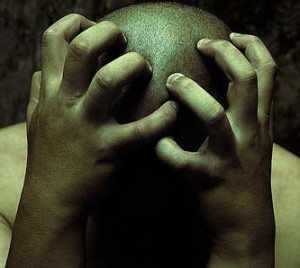An estimated 6 million men in the United States have a depressive disorder—major depression, dysthymia (chronic, less severe depression) or bipolar disorder (manic-depressive illness)—every year. Although these illnesses are highly treatable, many men do not recognize, acknowledge or seek help for their depression.
While both men and women may develop the standard symptoms of depression, they often experience depression differently and may have different ways of coping. Men may be more willing to report fatigue, irritability, loss of interest in work or hobbies, and sleep disturbances rather than feelings of sadness, worthlessness, and excessive guilt, which are commonly associated with depression in women. Also, 4 times as many men as women die by suicide, although women make more suicide attempts.
Depression is a real and treatable illness. It can strike at any age, from childhood into late life. With proper diagnosis and treatment, the vast majority of men with depression can be helped.
Real Men and Depression: Differentiating Depression from the Blues
 Depression is a serious medical condition that involves the body, mood and thoughts. It affects how you eat and sleep. It alters your self-perception. It changes the way you think and feel. Men with a depressive illness can’t just “snap out of it” or “pull themselves together,” because depression isn’t the same as a passing mood. Left untreated, depression may last for weeks, months, or years at a time.
Depression is a serious medical condition that involves the body, mood and thoughts. It affects how you eat and sleep. It alters your self-perception. It changes the way you think and feel. Men with a depressive illness can’t just “snap out of it” or “pull themselves together,” because depression isn’t the same as a passing mood. Left untreated, depression may last for weeks, months, or years at a time.
Depressive illnesses can make routine tasks unbearably difficult. Pleasures that make life worth living—watching a football game, playing with children, even making love—can be drained of joy. Depression brings pain and disruption not only to the person who has it, but also to his family and friends.
If you are experiencing some of the following symptoms, you may have a depressive illness. Ask yourself if you are feeling sad or “empty”; irritable or angry; guilty or worthless; pessimistic or hopeless; tired or “slowed down”; restless or agitated; like no one cares about you; or like life is not worth living. You may also sleep more or less than usual; eat more or less than usual; have persistent headaches, stomachaches or chronic pain; have trouble concentrating, remembering things or making decisions; lose interest in work or hobbies; or lose interest in sex.
If these symptoms are familiar, it’s time to talk with your doctor. Depression is a real, medical illness that can be successfully treated. Support from family and friends plays an important role as well.
Real Men and Depression: Courage to Ask for Help
The feelings and behaviors that are part of depression can hinder a person’s ability to seek help. In addition, men in particular may find it difficult to admit depressive symptoms and ask for help. However, it’s important to remember that depression is a real, treatable illness and is nothing to be ashamed about.
Thanks to years of research, a variety of effective treatments including medications and short-term psychotherapies are available for depressive disorders. Treatment choice will depend on the patient’s diagnosis, severity of symptoms, and preference. In general, severe depressive illnesses, particularly those that are recurrent, will require a combination of treatments for the best outcome.
If you are feeling depressed, tell someone about your symptoms. Speak with a doctor, nurse, social worker, psychologist, or employee assistance professional. Asking for help takes courage, but it can make all the difference.